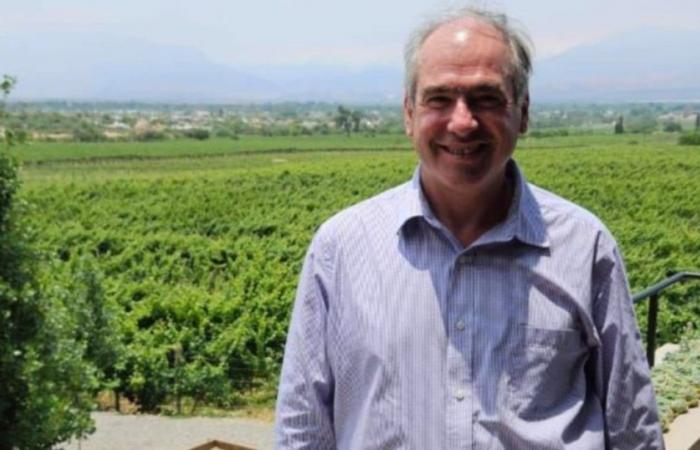In the tourism industry, it is clear that there are people who work to ensure that tourists have a good experience. Current times demand that there be more trained people. Horacio Cornejo, director of the School of Tourism at the Catholic University of Salta, spoke about this and other points.
Is there a more competitive tourism?
Tourism is becoming a more competitive and demanding sector. When you had, well, a lot of national visitors who did not travel abroad, they came with some demanding or expecting certain standards of service. Today, it is becoming more and more common to go out into the world and so, within national tourism, an improvement in the quality standards of services is also required. Above all, if we think that today, what the traveler is looking for is not only to note that he visited a certain place, but what is increasingly valued is the experiences, that is, what I live, what I do, what the tourist trip transforms me into for the better, this great investment that it means in time and money. So we are moving from a type of tourism that was never improvised, of course, because tourism requires prior arrangements and preparation, but we are moving to a type of tourism that requires greater professionalism in the receptive services. That is very clear and it is a global effect. In the world with the advancement of communications, even for the Argentine market, one cannot remain on the sidelines of the quality standards, of the experiences, of the way in which tourism is being worked on today in the main destinations.
And do these experiences imply a higher cost for the tourist or are they for the entire public?
No, not necessarily. Tourist costs are largely dedicated to transportation, that is, getting to the destination, another important part to accommodation, and another part to the activities you do at the destination where you are. Accommodation is also sometimes offering experiences. You say, you have a glamping site, you have accommodation in a farm or in rural tourism, that is to say that accommodation has also begun to be more than just a bed and a clean bathroom. There are hotels that have more careful services, higher quality. And then where you really expect to experience what the destination has to offer is the activities that you can do. And that is where the real transformation is or where the real transformation should be. That is to say that tourists do not come just to look, but rather they travel trying to receive pleasant experiences, transformative experiences through all the senses and also through growth in terms of knowledge. For example, when we say it is not just going to look at a winery, if we put ourselves in the subject of tourism. But to see how this wine-making activity is culturally inserted and how this wine-making activity expresses the culture, expresses what wine experts call the terroir. One says terroir, one thinks that we are referring to the land in the direct sense, we are referring to a sandy or sandy loam soil… But when we talk about terroir, in reality we are referring to a term that refers much more to the local culture, it refers much more to the cultural and also natural particularities of the place where the wine is produced. So, that is where tourism comes in. That link, that explanation, that introduction is what makes a trained tourism professional. That is to say, there is the wine, there is the estate, there is the territory, there is the landscape. But who makes it accessible to the visitor who has perhaps two days to have the experience? So, the intervention of a tourism professional is necessary to bring you that experience, to bring you that knowledge, in an efficient way, to be able to enjoy the true meaning of what high-altitude wines are, for example, in Salta, or the very high quality of wines from other regions of Argentina as well, of course.
And with all this new context it requires more integrated training, right? Also, you know? Of gastronomy, well, of wines, of history…
Of course, wine and food tourism, which is a concept that sometimes fits better. Wine alone, wine never works alone. Wine and local gastronomy are two very important factors through which the soul of places is transmitted. So, when we talk about wine it is impossible not to also refer to regional foods. In fact, no wine pairs better with empanadas than our Torrontés. It is the special partner of empanadas or various other spicy foods. There is, without a doubt, a taste that was developed, a special selection that was developed by the people who make the wines who were interpreting the local gastronomic offer and were accompanying it in what we call this pairing between wines produced in the region and traditional foods from the same region. The truth is that tourists, well, do not always come knowing all this cultural development that leads a region to have a very particular expression in gastronomy and a very particular and related expression in the production of wines. Ultimately, professionalism means saving time and experience for the tourists who visit us. That is what tourists will really value, access to experiences that would otherwise take much longer to live or would be impossible to live, and also the explanation of how to achieve maximum enjoyment of that relationship between gastronomy and wine. But it is not the only nexus. It is a privileged one, regional food and wines, a very important topic.
What other factors can affect it?
There are other factors, other cultural aspects that are also related to wine, such as special festivities, patron saint festivals, customs that have to do with other activities such as the production of artisanal sweets or other products that are found in the region and are also linked to wine.


